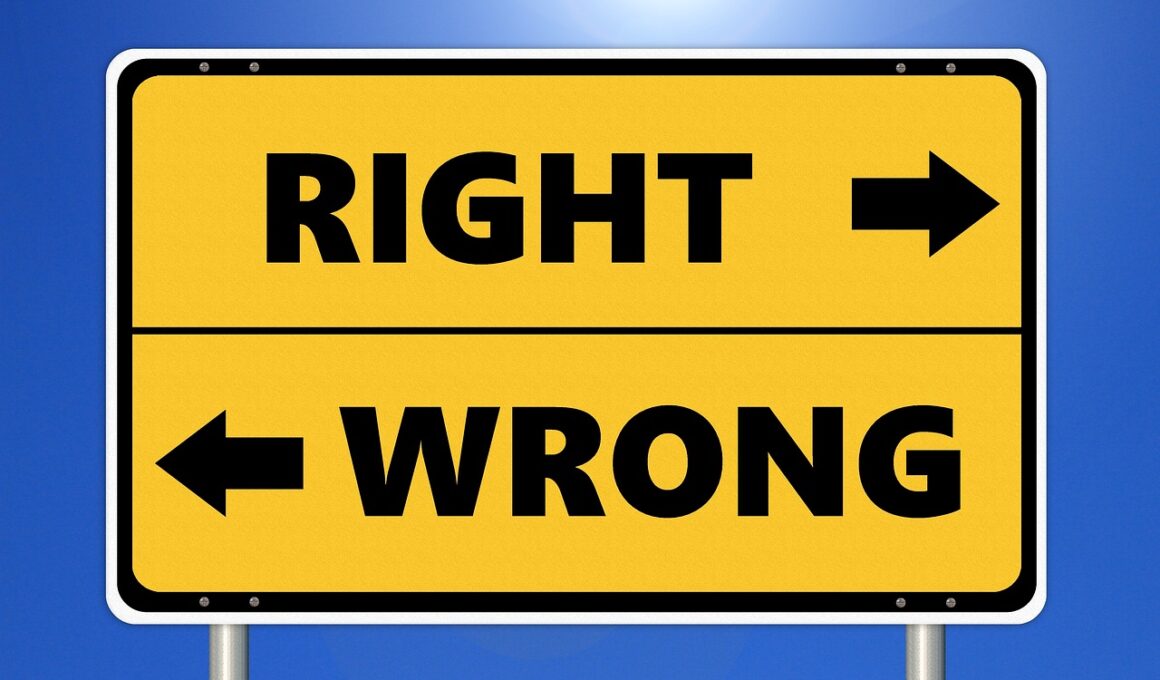How to Ensure Ethical Practices in Influencer Collaborations
In today’s fast-paced digital landscape, influencer collaborations have become an essential component of effective marketing strategies. Brands partner with influencers to reach targeted audiences authentically, creating engaging content that resonates with their followers. However, with great power comes great responsibility. Ethical practices in these collaborations are crucial to maintaining trust between brands, influencers, and their audiences. Transparency is key; influencers must disclose partnerships to maintain honesty and uphold integrity in their endorsements. Failure to do so may not only tarnish their reputation but also damage the brand’s credibility. Ethical collaborations focus on honest representation of products, ensuring that influencers genuinely believe in the items they promote. Additionally, following advertising regulations is imperative to prevent misleading consumers. Consideration of audience perception should guide content creation and messaging. Brands and influencers alike should prioritize ethical considerations in their partnerships to foster a transparent and authentic relationship with their audiences. This article delves into best practices for ensuring ethical practices in influencer collaborations, exploring key strategies that both influencers and brands should adopt to uphold ethical standards and enhance brand image.
Understanding the Ethical Landscape
Influencer collaborations are governed by an intricate web of ethical considerations, particularly as social media continues to evolve. Understanding these ethical dilemmas is vital for brands and influencers alike. One major issue is the authenticity and genuine endorsement of products. Consumers tend to be perceptive; they can often discern when a collaboration is merely transactional and not based on true belief in a product. This perception can negatively impact the influencer’s credibility and the brand they represent. Brands should collaborate with influencers whose values align with their products, ensuring coherent and authentic narratives across promotional campaigns. Additionally, cultural sensitivity plays a significant role in ethical practices. Influencers must be aware of how their content may be perceived across various cultural contexts. Ignoring cultural nuances can lead to backlash and harm the influencer or brand reputation. Moreover, respecting intellectual property rights is crucial in ensuring ethical collaborations. Brands and influencers should acknowledge and appropriately compensate creators for their original work. Adhering to these ethical principles fosters trust and establishes long-lasting relationships between brands, influencers, and consumers.
One of the cornerstones of ethical influencer collaborations is transparent communication. Influencers should openly disclose their partnerships with brands to uphold integrity. This can take several forms, including clear labeling, hashtags like #ad or #sponsored, and frequent reminders about the nature of collaborations. Transparency not only complies with regulations set forth by organizations such as the Federal Trade Commission (FTC) but also cultivates trust among followers. Consumers appreciate honesty when it comes to advertising. Therefore, influencers must be forthcoming about the nature of content being sponsored. Additionally, both parties should establish clear expectations regarding deliverables, timelines, and compensation at the beginning of collaborations. This ensures smooth workflows and clarifies any potential misunderstandings that may arise later. Brands should also encourage influencers to share their genuine feedback about products, even if that feedback is not entirely positive. Transparency and respect in communication can lead to more authentic representations of products while maintaining a positive relationship between brands and influencers. Effective communication must be prioritized throughout the collaboration process to minimize ambiguity and enhance mutual respect, resulting in ethically sound and effective partnerships.
Another critical aspect of ethical influencer collaborations is the proper selection of influencers that align with brand values. Brands must conduct thorough research to identify influencers whose followers and content truly resonate with their target audience. Collaborating with an influencer solely based on follower count may lead to a lack of authenticity and relatability. It is important to recognize the significance of engagement rates and the influencer’s ability to connect with their audience on a personal level. Additionally, brands should avoid collaborating with influencers who have a history of unethical practices or controversies that can negatively affect their image. Picking trustworthy influencers who genuinely advocate for the brand cultivates a loyal audience. This will ensure that the promoted products are received positively, driving higher engagement and conversions. Brands can enhance ethical practices by seeking out diverse influencers, promoting inclusivity in their marketing efforts, and encouraging a variety of voices. A diverse range of influencers can lead to more impactful campaigns, enhancing understanding and appreciation from a wider audience. In doing so, brands can demonstrate social responsibility and build stronger connections with their consumers.
Monitoring the impact of influencer campaigns is crucial for ethical practices. Brands should actively track audience reactions and feedback to assess the effectiveness of their collaboration. This involves analyzing metrics such as engagement rates, comment sentiment, and overall reach. By measuring the impact, brands can determine whether the influencer’s promotion aligns with their ethical standards and marketing goals. Additionally, brands should be prepared to make necessary adjustments in response to feedback. Engaging in active dialogue with both influencers and consumers can lead to improvements in content and approach. This demonstrates a brand’s commitment to transparency and responsiveness. Moreover, it reflects a willingness to address potential issues swiftly, strengthening credibility and trust with audiences. Ensuring that both parties contribute to maintaining ethical standards also involves open discussions about the campaign’s outcomes. Both the brand and influencer should evaluate what worked well and what did not, fostering a culture of continuous improvement. By critically analyzing the campaigns, brands not only refine their marketing strategies but also reinforce their commitment to ethical practices in influencer collaborations.
Educating Influencers on Ethical Practices
Education plays a vital role in fostering ethical practices among influencers. Brands should prioritize training and resources for their influencer partners to help them understand the ethical landscape of collaborations better. This can be done through workshops, webinars, and comprehensive guides that cover crucial topics like regulation compliance, transparent communication, and fostering authentic connections with their audience. By equipping influencers with these tools, brands empower them to create content that genuinely reflects their values and maintains ethical standards. Moreover, influencers should be encouraged to stay updated with changes in advertising regulations and industry best practices. Continued education can help influencers navigate the complexities of influencer collaborations more effectively. Additionally, brands can share success stories from previous collaborations that highlight ethical practices, providing practical examples of how these principles translate into successful campaigns. Collaboration between brands and influencers fosters a shared commitment to ethical practices, resulting in enhanced relationships and improved outcomes for campaigns. Ethical educational initiatives help cultivate a responsible influencer community that values transparency and accountability.
Ultimately, the responsibility for upholding ethical practices in influencer collaborations lies with both the influencers and brands. Each party must commit to a set of values that prioritize integrity, honesty, and authenticity. As the social media landscape continues to evolve, it is essential for all stakeholders involved to recognize the influence they wield and the impact of their actions. This understanding serves as the foundation for building ethical partnerships. Accountability must also be sustained throughout the collaboration process; both influencers and brands need to be prepared to hold each other accountable for their commitments. Periodic reviews of collaboration outcomes and open discussions about ethical dilemmas can foster a greater sense of responsibility. Additionally, being responsive to audience feedback will contribute to refining future collaborations and ensuring that ethical practices remain a priority. By fostering a collaborative spirit that emphasizes ethics, brands and influencers can set an industry benchmark for ethical marketing practices. This not only benefits each party involved but also positively impacts consumer trust and loyalty, ultimately leading to more successful influencer marketing campaigns.


